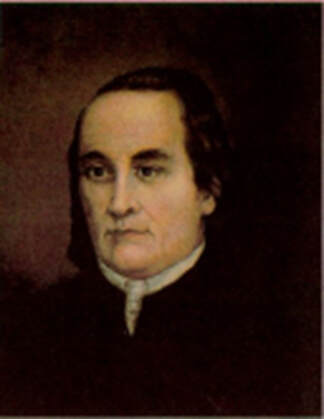
Philip William Otterbein (1726-1813) was a German-American clergyman who founded the Church of the United Brethren in Christ. He was born in Dillenburg, Germany. Three years after his ordination into the ministry of the German Reformed church in 1749, Otterbein immigrated to the U.S.
Settling in Lancaster, PA, he began his successful evangelization in the area of present-day Pennsylvania and Maryland and introduced class meetings, open-air meetings, and prayer meetings to his congregations. He later met the Mennonite bishop Martin Boehm (1725-1812), with whom, in 1769, he founded a new group, the United Brethren in Christ.
Otterbein assumed the pastorate of the Evangelical Reformed church in Baltimore in 1774, a position he held for almost 40 years. In 1800, at the first annual conference of the United Brethren in Christ, he and Boehm were elected bishops. The United Brethren split into two camps in 1889.
The "liberals" eventually merged with the Evangelical Association and became Evangelical United Brethren Church. The others kept the name Church of the United Brethren in Christ which still exists today.
Settling in Lancaster, PA, he began his successful evangelization in the area of present-day Pennsylvania and Maryland and introduced class meetings, open-air meetings, and prayer meetings to his congregations. He later met the Mennonite bishop Martin Boehm (1725-1812), with whom, in 1769, he founded a new group, the United Brethren in Christ.
Otterbein assumed the pastorate of the Evangelical Reformed church in Baltimore in 1774, a position he held for almost 40 years. In 1800, at the first annual conference of the United Brethren in Christ, he and Boehm were elected bishops. The United Brethren split into two camps in 1889.
The "liberals" eventually merged with the Evangelical Association and became Evangelical United Brethren Church. The others kept the name Church of the United Brethren in Christ which still exists today.
